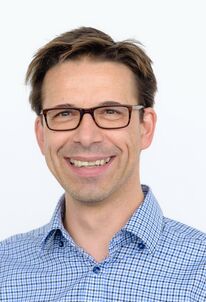Forschungsprojekt
Network for Water and Life (NEWAL)
The project "Network for Water and Life" is a new cluster of Cooperation in the Global South (CLOC). NEWAL consists of education and research partners in Cote d’Ivoire, Ghana and Liberia and ten partners of higher education in Switzerland, and provides new opportunities for cooperation.
Why Water?
Water-related ecosystems are essential to life and have provided natural sites for human settlements, bringing benefits such as transportation, natural purification, irrigation, flood protection, and habitats for biodiversity. Transitioning towards more sustainable and resilient societies requires an integrated approach that recognizes that current challenges and their solutions are interrelated.
Access to freshwater in sufficient quantity and quality (SDG 6) is a prerequisite to achieving SDGs that pertain to health (SDG 3), food security (SDG2), energy (SDG 7), and poverty reduction (SDG 1). Overuse is contributing to the rapid depletion of water resources, leading to insecurity and potential conflict (SDG 16). Climate change (SDG 13) is affecting water resources in many already water-stressed areas.
The critical importance of water for life therefore requires a multi-disciplinary research approach that connects all these SDGs and develops a common understanding of how current and future challenges can be met.
Research Activities in 2020
The goal of NEWAL's 2020 research activities is to bring together 20 Bachelor and Master students from various disciplines and countries to focus on the overarching topic of “Water and Life”. The students will work across disciplines and will conduct research that can feed into practical contributions towards a more sustainable ecosystem, with a special focus on water and livelihoods. Implementation will be as follows:Vorbereitungsphase (Januar 2020): Studierende aus der Schweiz und westafrikanischen Partneruniversitäten wählen ein Forschungsthema aus und forschen im Vorfeld zu ihren Themen.
Preparatory Phase (January 2020): Students from Switzerland and West African partner universities select a research topic and do preliminary reseach on their topics.
Winter School, KNUST Kumasi Ghana (February 3-7, 2020): The winter school includes inputs from international experts, group work on case studies, and field visits.
Remote research (February-August, 2020): Each student spends 2-6 months doing field research and data collection. Swiss students may go to West Africa for field activities and throughout the duration of their research they will collaborate with their West African counterparts.
Summer School, Switzerland (September 2020): The 20 students meet again to present and discuss the results of their research. Academic supervisors suggest ideas for the students to pursue further related activities, and new opportunities for collaboration among the involved institutions will be elaborated. Field excursions will also be included.
Laufzeit: 01.05.2019 - 30.04.2023
Projektfinanzierung:
swissuniversities
Kooperation:
FHNW (University of Applied Sciences and Arts Northwestern Switzerland), PHZG (University of Teacher Education Zug), UNIBAS-Swiss TPH (University of Basel, Swiss Tropical and Public Health Institute), ETH (Swiss Federal Institute of Technology in Zurich, EAWAG-Sandec (Eawag: Swiss Federal Institute of Aquatic Science and Technology, Department Sanitation, Water and Solid Waste for Development), BFH (University of Applied Sciences Bern), SUPSI (University of Applied Sciences and Arts of Southern Switzerland), SMPM (Stella Maris Polytechnic University, KNUST (Kwame Nkrumah University of Science and Technology), UCA (University of Cocody-Abidja)
Projektteam:
Prof. Dr. Michael Burkhardt
UMTEC Institut für Umwelt- und VerfahrenstechnikProfessor, Institutsleiter UMTEC
+41 58 257 48 70michael.burkhardt@ost.ch


